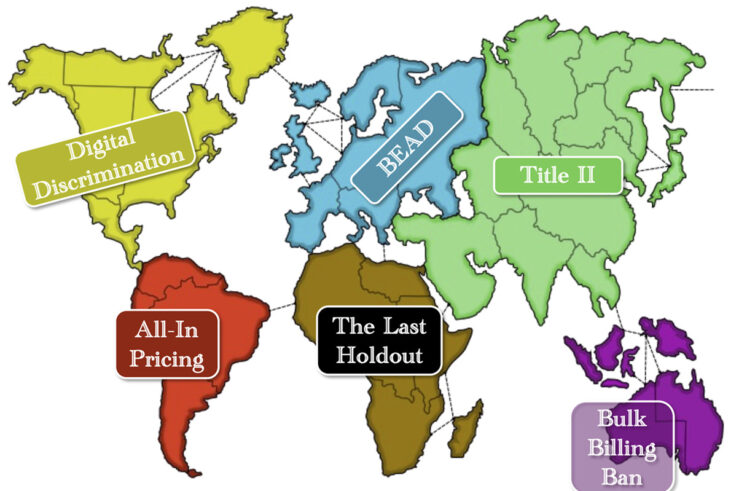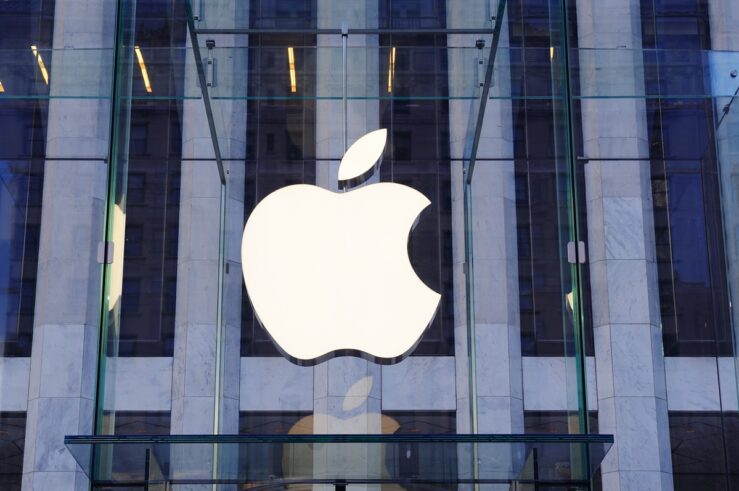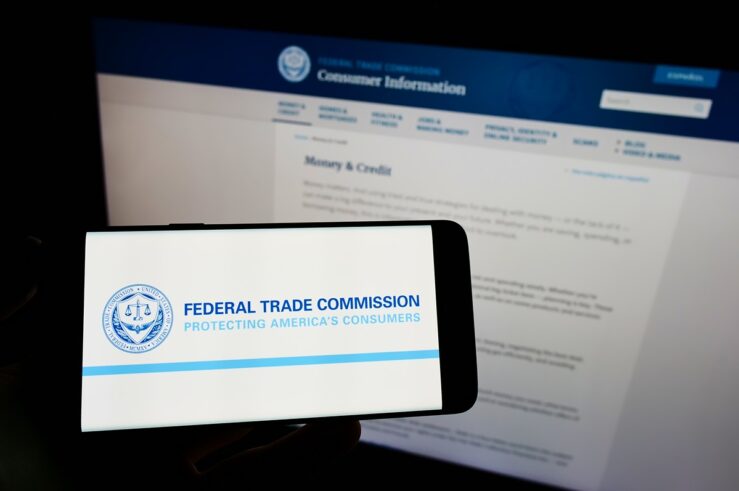Showing results for: “digital markets act”
Kroger/Albertsons: Is Labor Bargaining Power an Antitrust Harm?
The Federal Trade Commission’s (FTC) recent complaint challenging the proposed merger of the supermarkets Kroger Co. and Albertsons Companies Inc. has important implications for antitrust enforcement in labor markets. Central to the FTC’s case is how it chooses to define the relevant markets, and particularly the commission’s focus on unionized grocery workers. The complaint alleges ... Kroger/Albertsons: Is Labor Bargaining Power an Antitrust Harm?
India Should Question Europe’s Digital-Regulation Strategy
A year after it was created by the Government of India’s Ministry of Corporate Affairs to examine the need for a separate law on competition in digital markets, India’s Committee on Digital Competition Law (CDCL) in February both published its report recommending adoption of such rules and submitted the draft Digital Competition Act (DCA), which ... India Should Question Europe’s Digital-Regulation Strategy
The View from Australia: A TOTM Q&A with Allan Fels
Allan, you have a remarkably high public profile in Australia and are known to most of the Australian population as ex-ACCC chair. Could you please give us a bit on your background and how you got into competition law? I did degrees in law and economics at the University of Western Australia and a PhD ... The View from Australia: A TOTM Q&A with Allan Fels
Chris DeMuth Jr: Perspectives on Antitrust from Financial Markets and Venture Capital
How much do you take potential antitrust concerns into account when evaluating investments or mergers and acquisitions? Has this changed over time? Antitrust is a big part of M&A and the work I do in analyzing deals at Rangeley Capital. It has always been important, but the importance has grown with this administration’s activist approach. ... Chris DeMuth Jr: Perspectives on Antitrust from Financial Markets and Venture Capital
The Future of the DMA: Judge Dredd or Juror 8?
When it was passed into law, the European Union’s Digital Markets Act (DMA) was heralded by supporters as a key step toward fairness and contestability in online markets. It has unfortunately become increasingly clear that reality might not live up to those expectations. Indeed, there is mounting evidence that European consumers’ online experiences have been ... The Future of the DMA: Judge Dredd or Juror 8?
It’s Risk, Jerry, The Game of Broadband Conquest
The big news in telecommunications policy last week wasn’t really news at all—the Federal Communications Commission (FCC) released its proposed rules to classify broadband internet under Title II of the Communications Act. Supporters frame the proposed rules as “net neutrality,” but those provisions—a ban on blocking, throttling, or engaging in paid or affiliated-prioritization arrangements—actually comprise ... It’s Risk, Jerry, The Game of Broadband Conquest
Does the DMA Let Gatekeepers Protect Data Privacy and Security?
It’s been an eventful two weeks for those following the story of the European Union’s implementation of the Digital Markets Act. On April 18, the European Commission began a series of workshops with the companies designated as “gatekeepers” under the DMA: Apple, Meta, Alphabet, Amazon, ByteDance, and Microsoft. And even as those workshops were still ... Does the DMA Let Gatekeepers Protect Data Privacy and Security?
Antitrust at the Agencies Roundup: The Supply Chain, Part Deux
But First, Money Makes the World Go ‘Round For all my carping about this or that program or enforcement matter, it seems to me a very good thing that Congress passed—and President Joe Biden signed into law—the spending package that will keep much of the federal government up and running for Fiscal Year 2024 (see ... Antitrust at the Agencies Roundup: The Supply Chain, Part Deux
Capital Confusion at the New York Times
In a recent guest essay for The New York Times, Aaron Klein of the Brookings Institution claims that the merger between Capital One and Discover would “keep intact the broken and predatory system in which credit card companies profit handsomely by rewarding our richest Americans and advantaging the biggest corporations.” That’s quite an indictment! Fortunately, Klein also ... Capital Confusion at the New York Times
US v. Apple Lawsuit Has Big Implications for Competition and Innovation
The lawsuit filed yesterday by the U.S. Justice Department (DOJ) against Apple for monopolization of the U.S. smartphone market (joined by 15 states and the District of Columbia) has big implications for American competition and innovation. At the heart of the complaint is the DOJ’s assertion that: [Apple’s] anticompetitive acts include, but are not limited ... US v. Apple Lawsuit Has Big Implications for Competition and Innovation
Antitrust at the Agencies Roundup: Supply Chains, Noncompetes, and Greedflation
The big news from the agencies may be the lawsuit filed today by the U.S. Justice Department (DOJ) and 16 states against Apple alleging monopoly maintenance in violation of Section 2 of the Sherman Act. It’s an 86-page complaint and it’s just out. I’ll write more about it next week. Two quick observations: First, the ... Antitrust at the Agencies Roundup: Supply Chains, Noncompetes, and Greedflation
Murthy Oral Arguments: Standing, Coercion, and the Difficulty of Stopping Backdoor Government Censorship
With Monday’s oral arguments in Murthy v. Missouri, we now have more of a feel for how the U.S. Supreme Court appears to be considering the issues of social-media censorship—in this case, done allegedly at the behest of federal officials. In the International Center for Law & Economics’ (ICLE) amicus brief in the case, we ... Murthy Oral Arguments: Standing, Coercion, and the Difficulty of Stopping Backdoor Government Censorship
















